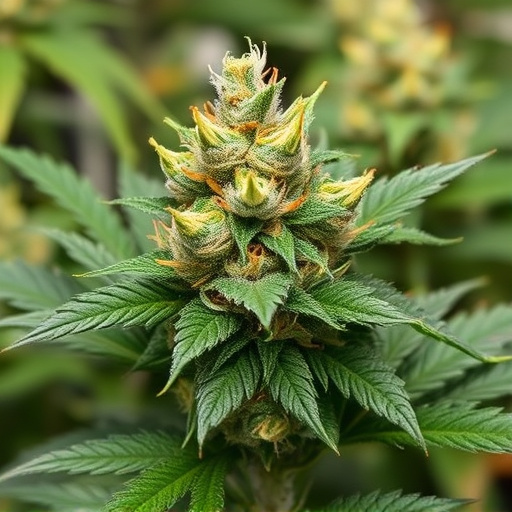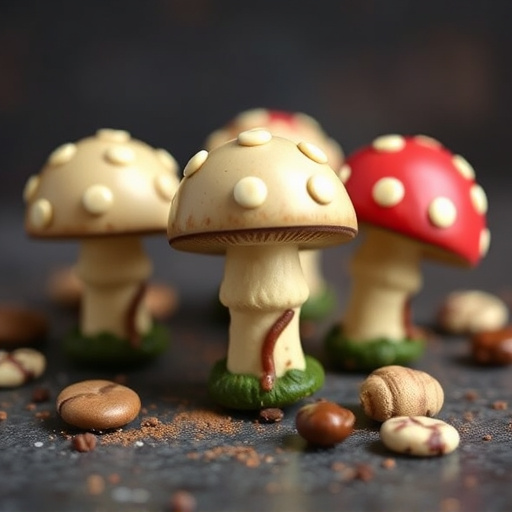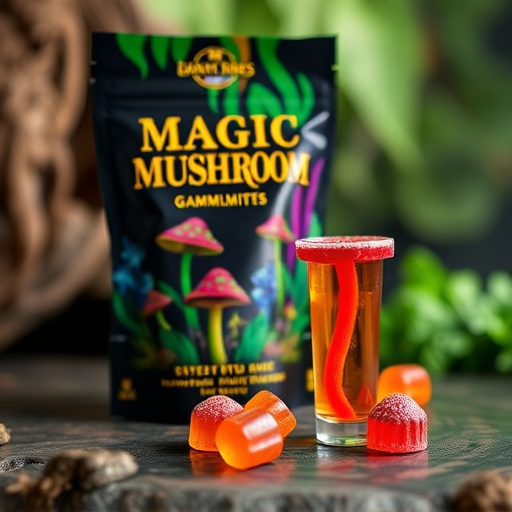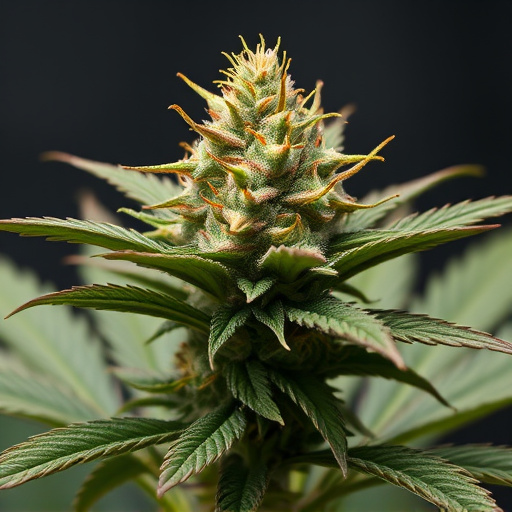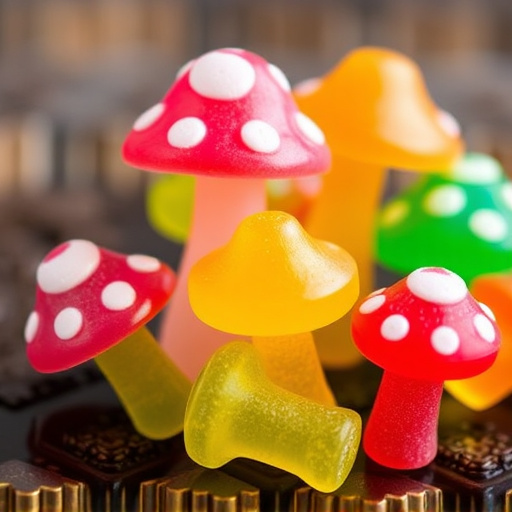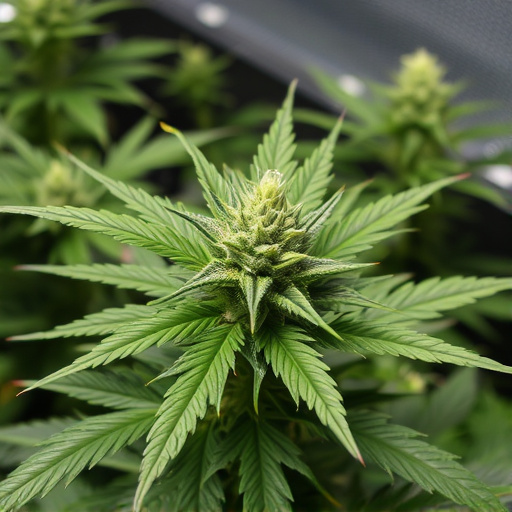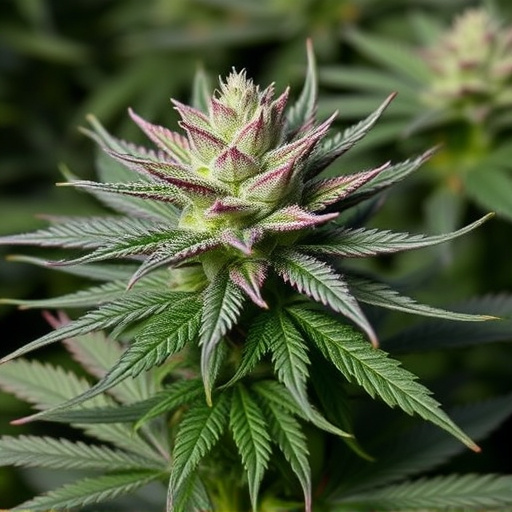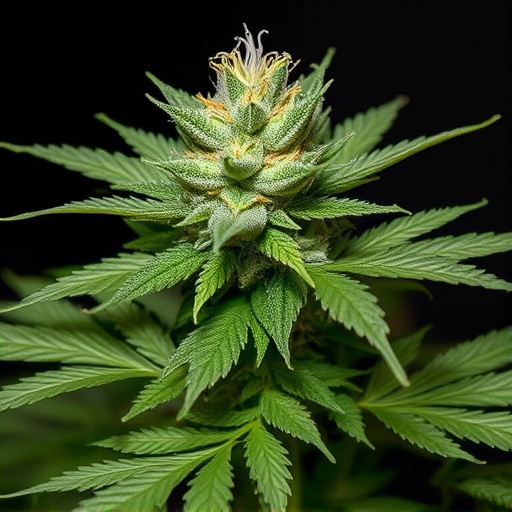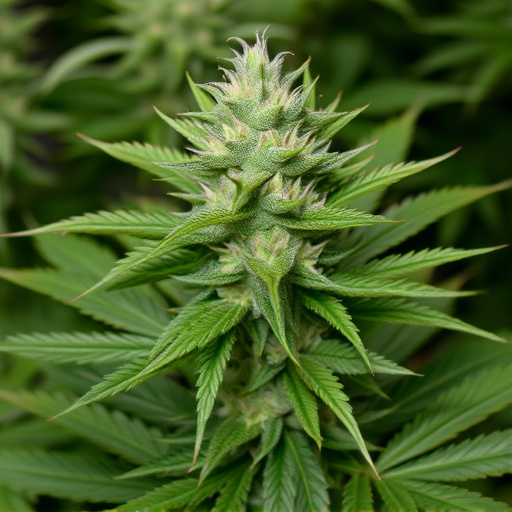The interaction between cannabis potency and nutrition, particularly with high sativa strains, is a growing interest area. Cannabinoids like THC and CBD affect mood, memory, and appetite through the endocannabinoid system. High sativa strains, rich in THC, offer intense psychological effects. Some advocate for dietary choices like omega-3 fatty acids and vitamins B & D to enhance cannabinoid absorption. While personal experiences suggest these nutrients intensify high sativa experiences, scientific research remains limited. Balanced diets supporting brain function can deepen appreciation of these strains' uplifting properties.
Curious about the connection between your diet and the potency of cannabis? This article explores whether specific foods can enhance your experience. We delve into the science behind cannabinoids, their effects on the body, and how nutrition impacts cannabis potency. Specifically, we focus on the role of high sativa strains and certain foods that may amplify their unique properties. By understanding these factors, consumers can make informed choices to tailor their cannabis experiences.
- Understanding Cannabinoids and Their Effects
- The Role of Nutrition in Cannabis Potency
- Exploring Specific Foods and High Sativa Strains
Understanding Cannabinoids and Their Effects
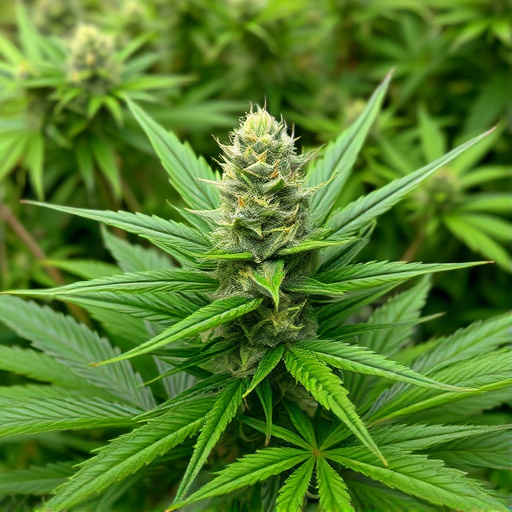
Cannabinoids, like THC (tetrahydrocannabinol) and CBD (cannabidiol), are chemical compounds found in cannabis plants that produce various effects on the human body and mind. Understanding how these substances interact is key to comprehending whether certain foods can enhance the potency of cannabis. When consumed, cannabinoids bind to receptors in our bodies’ endocannabinoid system, which regulates pain, mood, memory, appetite, and other physiological functions. This binding triggers a response that can lead to the characteristic effects associated with cannabis use, including relaxation, heightened sensory perception, and altered cognitive function.
High sativa strains of cannabis are particularly known for their elevated levels of THC, which is often linked to more intense psychological effects. Some proponents suggest that specific dietary choices could potentially amplify these effects. For instance, consuming foods rich in omega-3 fatty acids or vitamins B and D may enhance the body’s ability to absorb and metabolize cannabinoids. However, scientific research on this topic remains limited, leaving much of the discussion around food’s impact on cannabis potency based on anecdotal evidence and personal experiences rather than robust studies.
The Role of Nutrition in Cannabis Potency
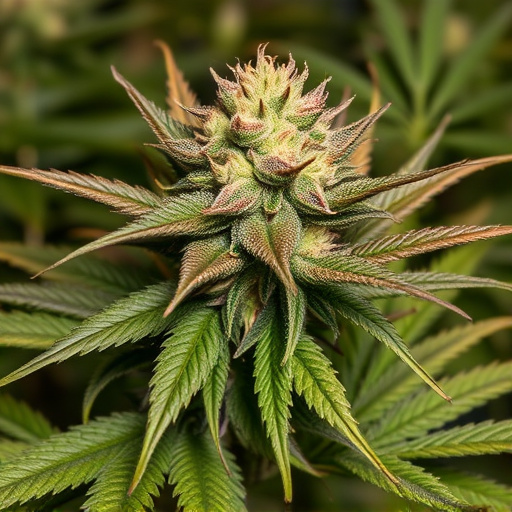
The relationship between nutrition and cannabis potency is an intriguing aspect often overlooked in the discussion about getting a “high.” While it’s commonly believed that the effects of cannabis are solely derived from its chemical composition, particularly cannabinoids like THC and CBD, nutrition plays a surprising role. Certain nutrients can potentially enhance the overall experience and even influence the perceived strength of the plant material.
High sativa strains, renowned for their invigorating and cerebral effects, may benefit from a balanced diet rich in essential nutrients. For instance, vitamins B and D, along with minerals like magnesium and zinc, contribute to optimal brain function. These nutrients can enhance the overall potency experience by supporting neuroplasticity and cognitive processes, allowing users to appreciate the subtle nuances of the high sativa strains they consume.
Exploring Specific Foods and High Sativa Strains
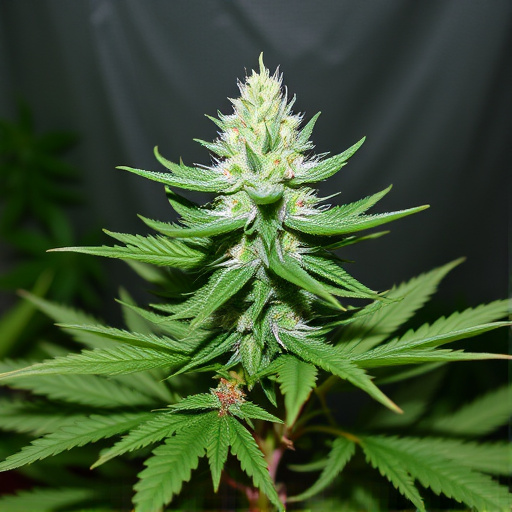
Some enthusiasts suggest that incorporating specific foods into your diet might enhance the potency of cannabis, particularly when paired with high sativa strains. Sativa varieties are known for their uplifting and energetic effects, often promoting clarity and creativity. While scientific evidence on this topic is limited, certain nutrients found in various foods could potentially interact with cannabinoids in ways that intensify these experiences.
For instance, foods rich in omega-3 fatty acids, like salmon or chia seeds, might contribute to a smoother high by balancing the body’s endocannabinoid system. Additionally, vitamins B and D, abundant in leafy greens and sunlight exposure respectively, could support overall well-being and enhance the positive effects of cannabis consumption. Exploring these dietary additions alongside high sativa strains may offer an enhanced sensory experience, but it’s important to approach this subject with an open mind and an understanding that individual responses can vary greatly.
While nutrition can influence cannabis potency, particularly with high sativa strains, it’s important to remember that individual reactions vary. Incorporating specific foods doesn’t guarantee a stronger high, but understanding how nutrition interacts with cannabinoids may enhance overall enjoyment and experience. Further research is needed to fully explore these connections.



